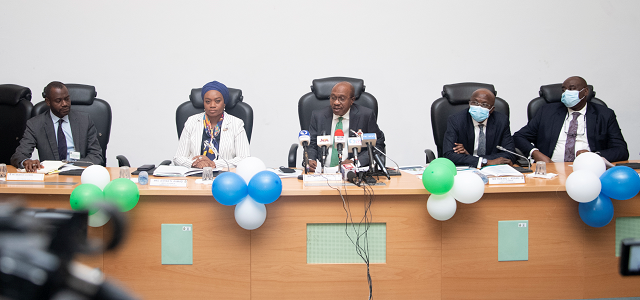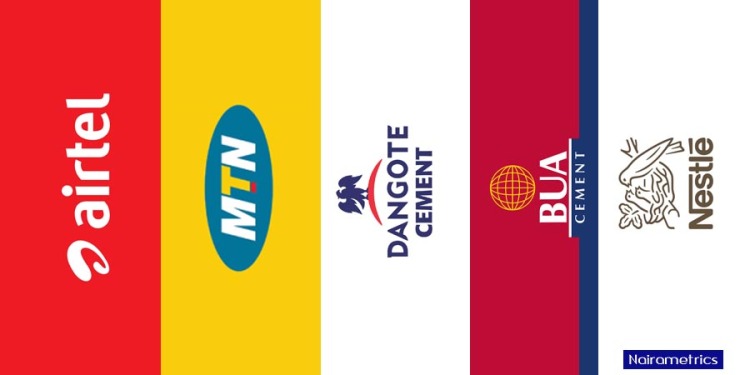The Central Bank of Nigeria agreed to leave interest rates for its development finance actives or intervention funds at 5% per annum until March 2023.
“The MPC is of the view that rates on the development finance initiatives of the Bank should remain at 5 percent till March 2023.”
This is coming on the heels of the decision of the monetary policy committee to increase benchmark monetary policy interest rates to 13% from 11.5%. Rate increases of this nature often lead to increases in lending rates across board.
The 5% per annum interest rate paid by the receivers of the loan is akin to a subsidy as the loans originally attract an interest rate of 9% per annum. And even at 9% the rate is still a huge discount when compared to rates as high as 20% per annum charged by commercial banks.
The decision to leave interest rates for intervention funds at 5% indicates the apex bank’s desire to continue to stimulate economic growth in key sectors which it is funding whilst allowing rate increases for other sectors.
Nigeria’s inflation rate galloped past 16% last month as the rising cost of goods and services eroded purchasing power. The CBN believes an increase in MPR could help stem the rise and also avoid capital outflows.
What this means
- Sectors such as agriculture, power, and aviation which have enjoyed trillions of dollars in intervention funds from the central bank continue to pay at 5%.
- Ironically, inflationary trends have been driven by higher electricity tariffs and rising food prices from two of the sectors (power and agriculture respectively) that have benefitted the most from subsidized interest rates.
- There is currently no mechanism for measuring the cost and impact of some of these interest rate concessions.
CBN continues to subsidize lending
According to the CBN, it has continued to fund activities across several sectors of the economy as part of its development finance activities. The funding come through loans from the CBN through commercial and developmental banks and they are what attract the 5% interest rate tenors for about ten years.
See the updated breakdown from the CBN
- Between April and May 2022, the Bank released the sum of N57.91 billion under the Anchor Borrowers’ Programme (ABP) to 185,972 new projects for the cultivation of rice, wheat, and maize, bringing the cumulative disbursement under the Programme to N1.01 trillion, disbursed to over 4.2 million smallholder farmers cultivating 21 commodities across the country.
- In addition, the Bank released N21.73 billion to finance seven (7) large-scale agricultural projects under the Commercial Agriculture Credit Scheme (CACS).
- The bank has so far spent about N741.05 billion for 674 projects in agro-production and agro-processing under its CACs scheme.
- In the manufacturing sector, the Bank disbursed the sum of N436.85 billion to 34 new projects under the N1.0 trillion Real Sector Support Facility (RSSF).
- In the healthcare sector, the CBN disbursed N17.70 billion to four (4) healthcare projects under the Healthcare Sector Intervention Facility (HSIF), bringing the cumulative disbursements to N130.49 billion for 126 projects, comprising 58 hospitals, 31 pharmaceuticals, and 37 other healthcare services.
- Under the Micro, Small, and Medium Enterprises Development Fund (MSMEDF), the Bank disbursed N2.79 billion to support youths engaged at various nodes of the agricultural value chain, bringing the total disbursement under this intervention to N98.88 billion to 749 MSME projects across the country.
- In energy/infrastructure, the Bank released N15.71 billion to power sector players including generation companies (GenCos) and gas companies (GasCos), under the Nigeria Bulk Electricity Trading Plc – Payment Assurance Facility (NBETPAF), bringing the cumulative disbursement under the facility to N1.30 trillion.
- The sum of N22.67 billion was also released to Distribution Companies (DisCos) for their Operational Expenditure (OpEx) and Capital Expenditure (CapEx), under the Nigeria Electricity Market Stabilisation Facility – Phase 2 (NEMSF-2). Cumulative disbursement under the NEMSF-2 currently stands at N251.93 billion. Additionally, under the National Mass Metering Programme (NMMP), the Bank has disbursed N0.19 billion to DisCos for the procurement of electricity meters, bringing the cumulative disbursement for the procurement and installation of 865,956 meters across the country to N47.82 billion.

















